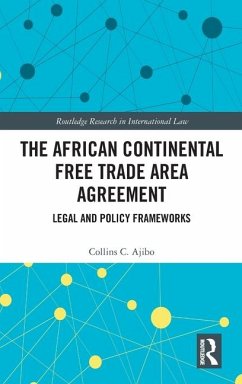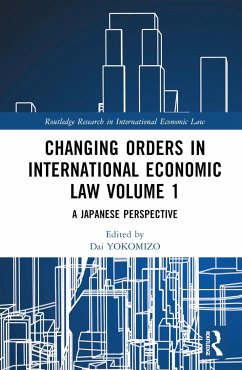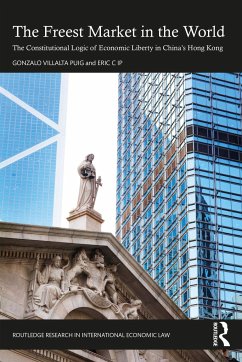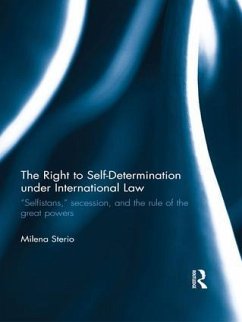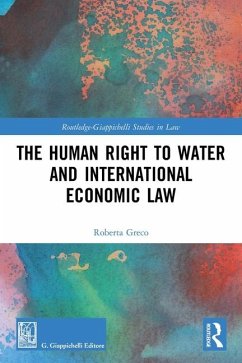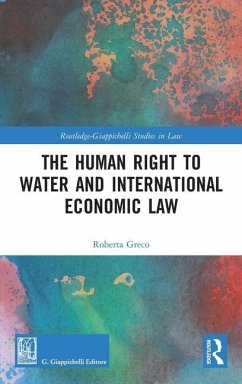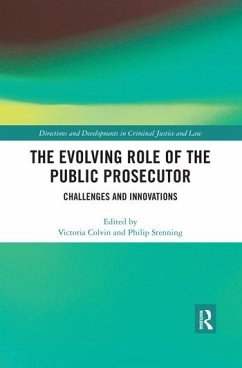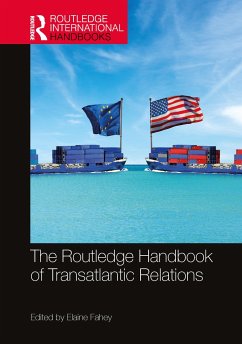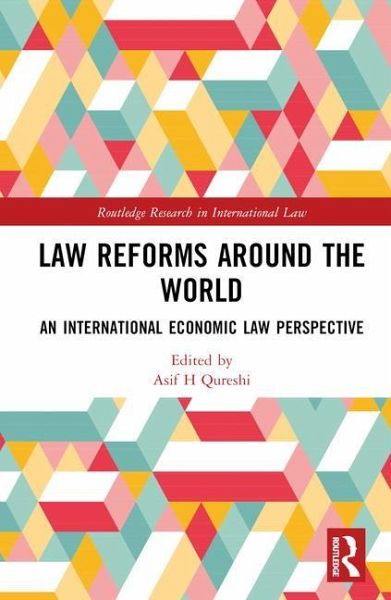
Law Reforms Around the World
Perspectives from National and International Law
Herausgegeben: Qureshi, Asif H
Versandkostenfrei!
Versandfertig in 6-10 Tagen
154,99 €
inkl. MwSt.
Weitere Ausgaben:

PAYBACK Punkte
77 °P sammeln!
Encapsulating Law Reform requires the creation of a discreet space occupied with normative self-generation, self-correction, and self-adaptation in the very anatomy of law and the architecture of legal systems. This 'living dynamic trait' should be a hallmark of the genetic material in the modern-day institution of law.This edited volume sheds light on Law Reform in its domestic, comparative, regional, and international settings. It examines the process of Law Reform and explains the need for a constant appraisal to keep its wheels optimally operational. The book takes a holistic approach to u...
Encapsulating Law Reform requires the creation of a discreet space occupied with normative self-generation, self-correction, and self-adaptation in the very anatomy of law and the architecture of legal systems. This 'living dynamic trait' should be a hallmark of the genetic material in the modern-day institution of law.
This edited volume sheds light on Law Reform in its domestic, comparative, regional, and international settings. It examines the process of Law Reform and explains the need for a constant appraisal to keep its wheels optimally operational. The book takes a holistic approach to understanding Law Reform and calls for such an approach in the very process of Law Reform. It begins by looking at Law Reform processes from a theoretical perspective. Thereafter, it sheds light on domestic Law Reform processes in civil and common law legal systems. This is followed by a focus on Law Reform at the international level with a critical appraisal of the International Law Commission (ILC), drawing on its performance in international economic and environmental law. Included in this consideration is also the role played in Law Reform by the IMF, World Trade Organization/World Intellectual Property Organization, Multilateral Development Banks, and the African Union Commission on International Law.
This volume should appeal to students, serious scholars, policy makers, judges, and the community of national and international lawyers interested in bringing effective reform in the national and international arenas.
This edited volume sheds light on Law Reform in its domestic, comparative, regional, and international settings. It examines the process of Law Reform and explains the need for a constant appraisal to keep its wheels optimally operational. The book takes a holistic approach to understanding Law Reform and calls for such an approach in the very process of Law Reform. It begins by looking at Law Reform processes from a theoretical perspective. Thereafter, it sheds light on domestic Law Reform processes in civil and common law legal systems. This is followed by a focus on Law Reform at the international level with a critical appraisal of the International Law Commission (ILC), drawing on its performance in international economic and environmental law. Included in this consideration is also the role played in Law Reform by the IMF, World Trade Organization/World Intellectual Property Organization, Multilateral Development Banks, and the African Union Commission on International Law.
This volume should appeal to students, serious scholars, policy makers, judges, and the community of national and international lawyers interested in bringing effective reform in the national and international arenas.





